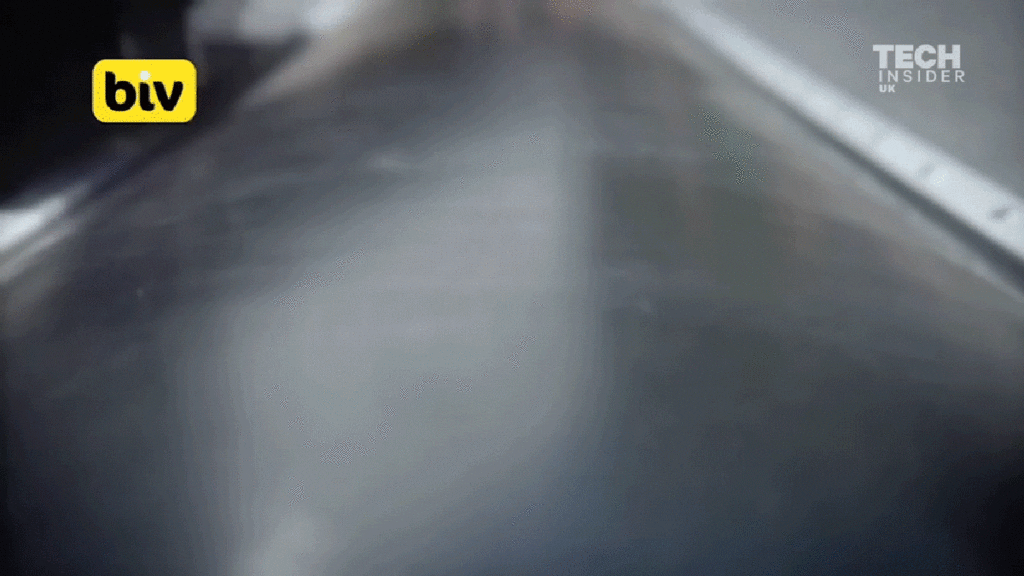These Speed Bumps Only Turn Solid If You Are Driving Too Fast

Nice and easy does it, every time. Gif: Insider Tech via YouTube
I understand that speed bumps are an important piece of road design and help cut road fatalities by forcing careless drivers to slow down, but I really do hate them. No matter the car you’re driving or the speed you’re going, they always provide an uncomfortable jolt as you pass over. Surely there’s a better way to slow people down, right? Right! And that solution comes from a Spanish company that’s filling its speed bumps with custard.
Forget Autonomy, Drivers Still Want Control
As I’m sure you’re aware, most speed bumps are hulking great mounds of tarmac or rubber positioned to try and slow speeding drivers. Some are bigger than others, forcing road users to slow to a crawl to safely cross them, and others are so badly designed that they can launch almost any passing motorist into the air.
To try and reduce the annoyance caused by speed bumps, one company in Spain has come up with a novel solution. Instead of making its bumps from concrete or tarmac, they are instead filled with custard.
This speed bump is filled with liquid that hardens if you go too fast
Strictly speaking, the speed bumps aren’t filled with the same mixture of milk and custard powder that you’d pour over a delicious crumble. Instead, they are packed full of non-Newtonian fluid, which is exactly what custard is before you cook it.
Non-Newtonian fluids are materials that behave as both a liquid and a solid. When you treat them with care and respect, they’re liquid and flow like heavy cream, but if a force is applied they go solid.
This means that with the speed bumps, slow drivers pass over without obstruction and can continue on their way without enduring a bumpy ride. If you hit the humps at speed, however, they’ll firm up and give you a bump to remind you to slow down.
It’s a very clever system and is the latest transport tech to prove that those pesky Europeans really are living in the future.





